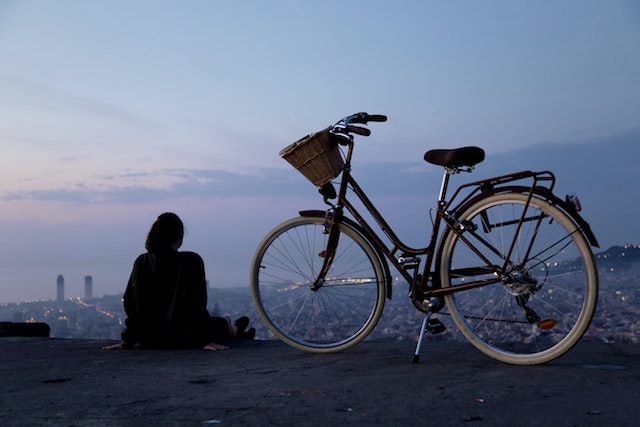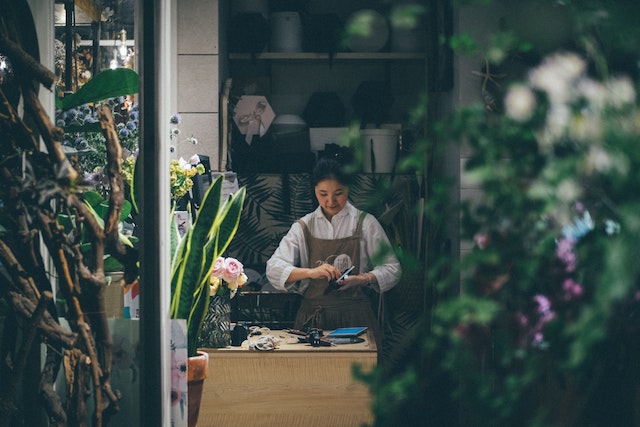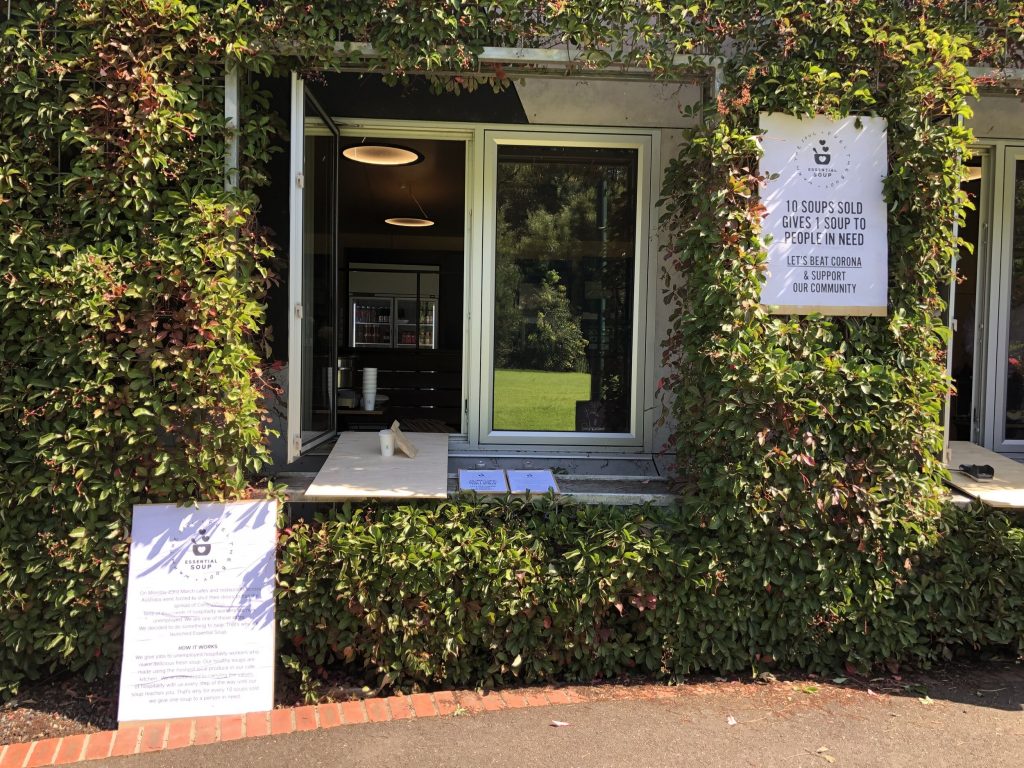Unlock the Magic in Your Story Now
Get the Free 20 questions to Ask Before Launching Your Idea workbook when you sign up for occasional updates.
Get the Free 20 questions to Ask Before Launching Your Idea workbook when you sign up for occasional updates.
Articles filed in: Strategy
The Way To Lead
filed in Meaningful Work, Strategy, Success

A few years back, my son was leaving the train station in Perth when someone asked him for directions. He began to explain the route but stopped halfway. ‘I’m going that direction, why don’t I take you there,’ he said, leading the way.
One of the best definitions of leadership I’ve read, explains that it’s the act of showing someone the way to a destination by going in front of or beside them.
That implies if we intend to lead, we not only need to know the destination but also who we’re leading and whether we’re committed enough to walk in front or beside them.
Leadership is a journey that we take the responsibility for making together.
Image by several seconds
Ideas Worth Keeping
filed in Meaningful Work, Strategy, Success

Sometimes our best ideas come to us when we’re working with constraints. We’ve all seen hundreds of brilliant ideas and initiatives come into being as a result of communities being in isolation around the globe.
Local councils in London are calling at-risk elderly to ask if they need groceries or medicines delivered.
Villages have started newsletters to keep communities informed and together.
Neighbours are dropping care packages at the doors of vulnerable neighbours.
Supermarkets have changed store layouts, putting essential items at the front to cut down on shopping time.
Legoland is hosting live workshops to inspire children who are now home-schooled.
What ideas, routines and rituals have you started in the past few weeks that are worth keeping?
Image by Kelly Sikkema
One Way Or Another

When I got my first job, I cycled to work and back every day. On a fine summer day in Dublin, cycling is a joy, it’s a different story in winter. The worst part was always that last hill on the way home. I’d try to stay on the bike for as long as possible, not wanting the gradient to beat me. But when the frost was thick and the road slick with ice, there was nothing for it but to get off and walk up the hill alongside the bike.
As my progress up the hill slowed, I’d curse the wasted momentum, calculating how much earlier I would have arrived if I’d managed to stay on the bike. And yet, I still got home anyway. Maybe a few minutes later, with a bit less patience, I reached my destination all the same.
Whenever I feel like I’m not moving fast enough, I remember that hill and that I arrived one way or another. If you’re feeling like you’re not moving fast enough today, feel free to borrow my hill if it helps you to keep moving.
Image By Paolo Chiabrando
In Answer To Your Question
filed in Strategy, Success, Worldview

We like to ask for advice. It’s human to investigate all the angles—to seek the opinions of others. And yet in doing so, we can forget to reflect on our insights and assumptions.
We often forget to check in with our beliefs before considering what someone else thinks.
What if before sought advice, we reflected on our thoughts first?
What wisdom might we find in our own hearts?
What do I think? How do I feel? These are powerful questions.
Image by Pablo Andrés Rivero
Helpful Conversations

Over the past few weeks, my inbox has filled with emails from organisations I’d forgotten I’d ever had contact with. I must have signed up to an email list or bought something from them many years ago, but it’s so far back, I can’t remember why.
We’re all still trying to work out how to be useful to the people we serve in this moment. We want to help.
But the thing to remember about helpful conversations is that timing matters. Being helpful is not just about what you say or how you say it, it’s also about when you say it.
That doesn’t mean we need to stop talking, but it might just mean we need to be twice as good at listening, especially now.
Image by Fezbot
If I Were You
filed in Meaningful Work, Strategy, Success
 If I were you.
If I were you.
Four words it’s tempting to use when someone shares a problem.
Four words I’m trying to avoid using—because I am not you.
I don’t know what it’s like to sit with what you’re experiencing or feeling at this moment.
You have the wisdom of past experiences to draw on.
Ideas you haven’t yet articulated, even to yourself.
How many solutions could you generate if you reflected on what you want and what your next right step might be? Many more than if someone just told you exactly what to do.
Image by Burst
Balancing Wants And Needs
filed in Meaningful Work, Strategy, Success

On a normal day, our local supermarket stocks fifty different kinds of pasta. Right now they’re stocking two. On a normal day, customers would complain bitterly about the lack of choice. Today they’re grateful to leave the shop with two boxes of a brand of penne they’ve never tried.
What we’re witnessing in real-time as we work together to keep ourselves and our communities safe, is a shift in priorities, for our customers, clients and us. We’re adapting. And as we do, there’s an opportunity to pay attention to what the people we serve want and need in this moment.
These skills we’re learning today will help us to be better innovators and creators, teachers and marketers, tomorrow.
What do the people you serve need now? What will they want in the future?
Image by Soroush Karimi
What Can You Do Now?
 Julie has been running her local florist business for five years. She’s built up a reputation with the people in her suburb, who regularly pop in when they’re walking past to buy flowers and plants that brighten their homes and their lives.
Julie has been running her local florist business for five years. She’s built up a reputation with the people in her suburb, who regularly pop in when they’re walking past to buy flowers and plants that brighten their homes and their lives.
While new single bunch, online flower delivery services blossomed, Julie made the decision when she started to be a neighbourhood business. She wanted to serve a community of customers she knew by name. This strategy worked well for her, until now.
All the restaurants and cafés along her street have closed, and her customers have retreated indoors to self-isolate. The streets are eerily quiet. Nobody is popping in to buy flowers anymore. Julie’s strategy didn’t account for an event like this.
But she’s not ready to shut her doors. She wants to find a way to serve her customers. So she’s employed an extra driver and begun to offer free contactless delivery. Julie’s doing what she’s always done—what’s different is how she does it. Her strategy remains the same. It’s just her tactics that have to change for the moment.
What can you do now to keep doing what you’ve always done?
Image by Ellicia
What Did You Do?
filed in Innovation, Meaningful Work, Strategy

A walk down my local café strip shows just how resourceful we can be when we’re in a tough spot. Because of world events and government guidelines around group gatherings, restaurants and cafes can no longer welcome diners into their premises. But they are quickly adapting.
Every café has come up with a solution. Many have changed to a takeaway menu, offering local delivery. Smith & Daughters partnered with their organic vegetable wholesaler to sell fresh produce. Ish, the local Indian restaurant has started a meal kit service.
And Kere Kere launched Essential Soup, to provide jobs to unemployed hospitality workers and nourishment to those in self-isolation.
Now is a time of uncertainty for many of us. A time when our plans and our usual routines have been upended and some of us have extra hours on our hands.
When this moment passes, we will look back at how we adapted. We’ll remember how we became more creative, resourceful and resilient. We’ll remind ourselves, and each other about what we did, how we pushed through and how we helped.
This time next year, how will you answer the question: What did you do?
On Resourcefulness
filed in Strategy, Success, Worldview

When things don’t go according to plan.
Remember this isn’t the first time you’ve had to change course.
Make a list of all the other times you pushed through.
Remind yourself of the skills and strengths you previously called on in challenging times.
Tell yourself those stories today.
They will stand you in good stead as you work to change the things you can change.
Tomorrow and the day after.
Image by Neil Thomas